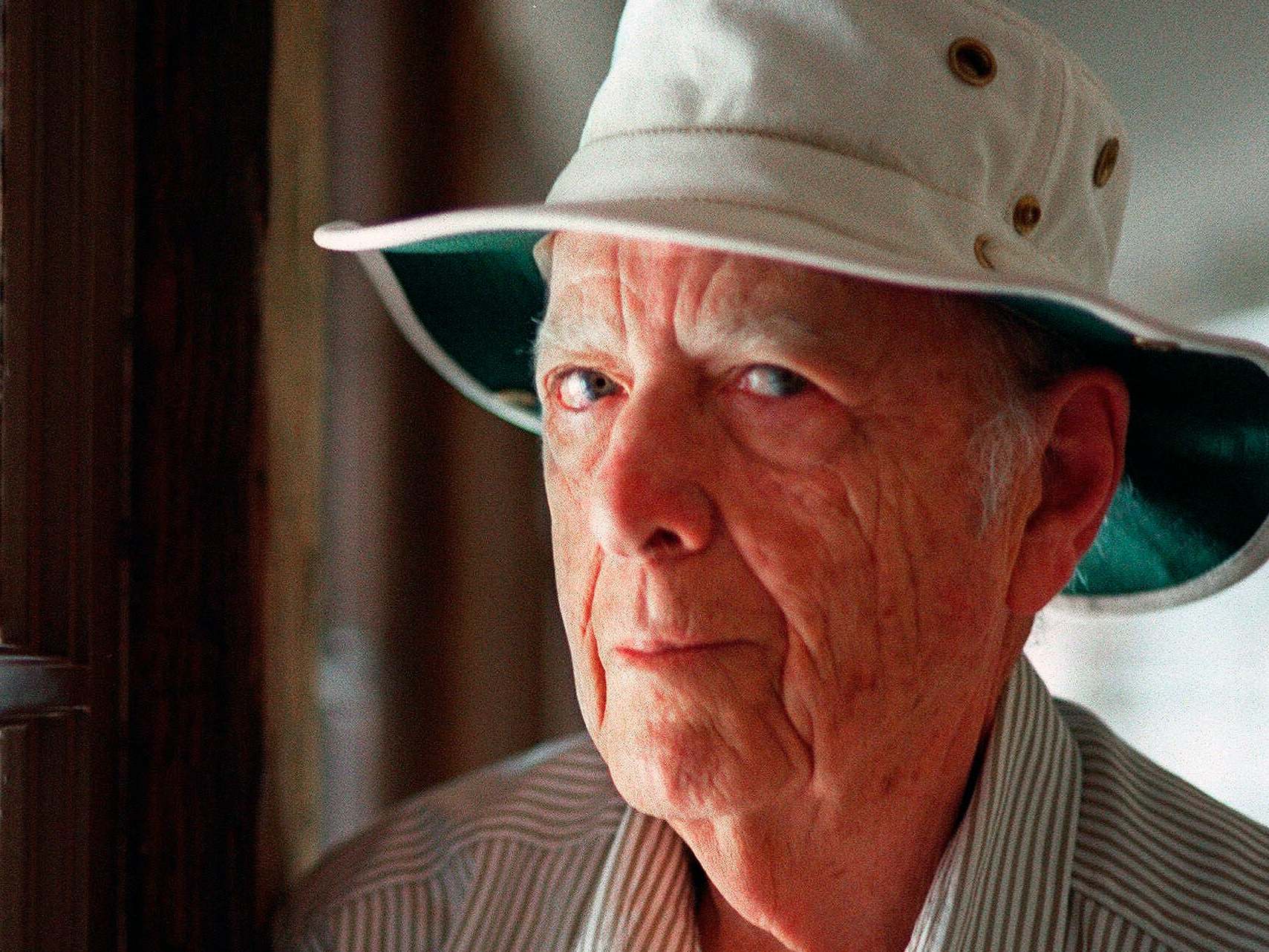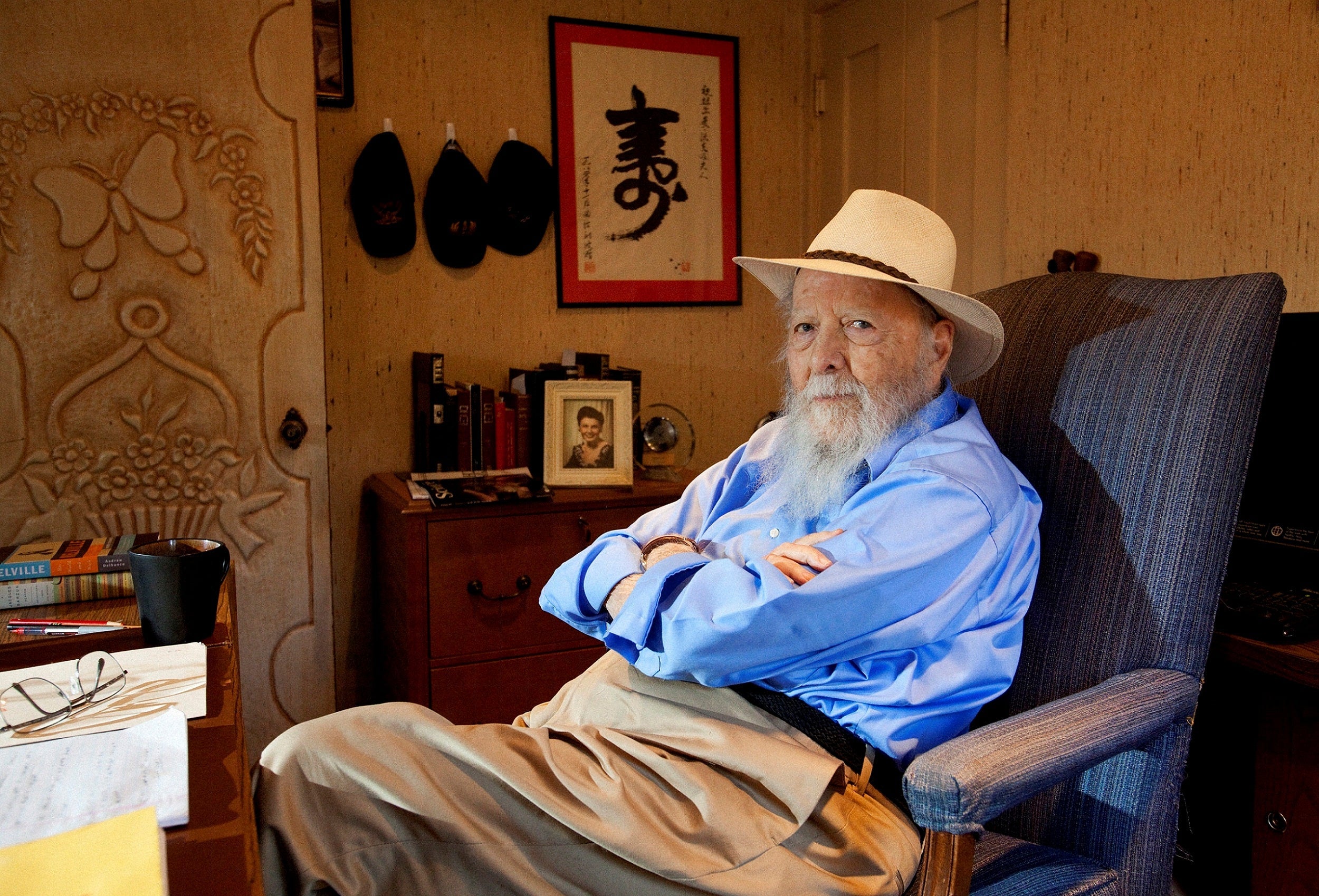Herman Wouk: Pulitzer prize-winning author of The Caine Mutiny and a master of historical fiction
His stories of emotional conflict against the backdrop of world events made his work ripe for screen treatment

Your support helps us to tell the story
From reproductive rights to climate change to Big Tech, The Independent is on the ground when the story is developing. Whether it's investigating the financials of Elon Musk's pro-Trump PAC or producing our latest documentary, 'The A Word', which shines a light on the American women fighting for reproductive rights, we know how important it is to parse out the facts from the messaging.
At such a critical moment in US history, we need reporters on the ground. Your donation allows us to keep sending journalists to speak to both sides of the story.
The Independent is trusted by Americans across the entire political spectrum. And unlike many other quality news outlets, we choose not to lock Americans out of our reporting and analysis with paywalls. We believe quality journalism should be available to everyone, paid for by those who can afford it.
Your support makes all the difference.Herman Wouk was the Pulitzer prize-winning author best known for The Caine Mutiny, inspired by his experiences in the US navy.
The sweep of Wouk’s novels about the Second World War, the Holocaust and the creation of Israel made him one of the most popular writers of his generation and helped to revitalise the genre of historical fiction.
Wouk, who has died aged 103, penned a dozen novels, a handful of plays and several nonfiction books over the course of his nearly 60-year career. A meticulous researcher, he specialised in stories of personal conflict set against the backdrop of compelling historical events, including The Caine Mutiny (1951), The Winds of War (1971) and War and Remembrance (1978).
The last two became TV miniseries in the 1980s starring Robert Mitchum, attracting tens of millions of viewers. In a form that the author would echo in other novels, The Winds of War and its sequel, War and Remembrance, trace the experiences of one family.
Winds follows navy officer Victor “Pug” Henry and his relatives from the German invasion of Poland to the Japanese attack on Pearl Harbour, where its sequel begins and then proceeds to the dropping of the atomic bomb on Hiroshima. That pair of books established Wouk’s legacy as a master of historical fiction. Despite their great appeal, critics sniffed at Wouk’s efforts.
Wouk began his professional career as a joke writer in the 1930s before moving to the staff of the popular radio comedian Fred Allen. He joined the navy during the Second World War and the crew of a mine-sweeper, the USS Zane.
His experiences there informed The Caine Mutiny: A Novel of World War II in 1951, which brought Wouk his first critical and popular success, including the Pulitzer. A 1954 film adaptation of the novel, starring Humphrey Bogart as Queeg, became a popular hit, earning Bogart an Academy Award nomination.
The stage version of the book’s courtroom scenes, titled The Caine Mutiny Court-Martial, proved a Broadway success in the 1950s with Henry Fonda and Lloyd Nolan and remained a staple of community theatres. Wouk became further embedded in the cultural firmament with film adaptations of his other books, including Marjorie Morningstar, with Gene Kelly and Natalie Wood.
Marjorie Morningstar, published in 1955, underscored another major aspect of Wouk’s life: books whose themes were central to his Orthodox Jewish faith. Wouk was born in 1915 in the Bronx, New York. His parents were Jewish immigrants from Russia, and his father worked his way into the presidency of a laundry chain business.

As a child, he was the neighbourhood fat boy forever being clobbered by street toughs. He found comfort in books that his mother bought from a travelling salesman when he was 12. In particular he grew to love the writing of Mark Twain for his ability to make people laugh, even at matters of faith.
The arrival from Russia of his maternal grandfather, an Orthodox Jewish rabbi, would have a decisive influence on Wouk’s beliefs and many of his later works of fiction and nonfiction.
Wouk decided at a young age that he wanted to be a writer. He wrote for university humour magazine and several student musical comedy revues, one of which prompted a student critic to quip: “All Wouk and no play.”
He graduated in 1934 with majors in philosophy and comparative literature and took a $15-a-week job working for a man he called the “czar of gag writers”, who modernised and cleaned up old jokes and sold them to entertainers such as Eddie Cantor. Within a few years, he joined Fred Allen’s comedy-writing team.
Wouk returned to comedy later in his career, collaborating with singer Jimmy Buffett on a musical based on Wouk’s 1965 novel Don’t Stop the Carnival, about a harried New York publicist who flees to the fictitious Caribbean island of Amerigo to run a resort hotel. The show became a crowd favourite when it opened in 1997 in Miami’s Coconut Grove Playhouse.
Wouk’s first novel, Aurora Dawn, was published in 1947. It started as a play he was writing while at sea during the war but evolved into a full-blown story about the life and romances of a radio advertising worker.
His next novel, City Boy (1948), was about a Jewish youth from the Bronx whom Wouk based in part on himself. Then, in 1949 came the screenplay for the film Slattery’s Hurricane, starring Richard Widmark as a man seeking to redeem himself by flying a reconnaissance mission in a hurricane. The book of the same title was published in 1956.
The Caine Mutiny proved the sensation that fully established Wouk’s career. His later novels included Youngblood Hawke (1962), about an American writer who becomes a victim of his own success, and The Hope (1993) and The Glory (1994), which documented the struggle for Israeli statehood from the perspective of several fictional families.
In 2012, Wouk published his last novel, The Lawgiver, which revolves around the making of a screenplay about Moses and includes Wouk himself as a character.
In 2016, he published a memoir, Sailor and Fiddler: Reflections of a 100-Year-Old Author, and was recently working on another book.
The Library of Congress held events in honour of Wouk on many occasions, including naming him, in 2008, the recipient of its first lifetime achievement award for fiction writing. But he acknowledged that he wasn’t much for being in the public spotlight or at large soirees, instead preferring to throw small dinners with his wife of more than 60 years,
His wife Betty died in 2011. Their son Abraham drowned as a child in 1951. Survivors include two children, Iolanthe Woulff and Joseph Wouk; three grandchildren; and two great-grandchildren.
Herman Wouk, American writer, born 27 May 1915, died 17 May 2019
© Washington Post
Join our commenting forum
Join thought-provoking conversations, follow other Independent readers and see their replies
Comments